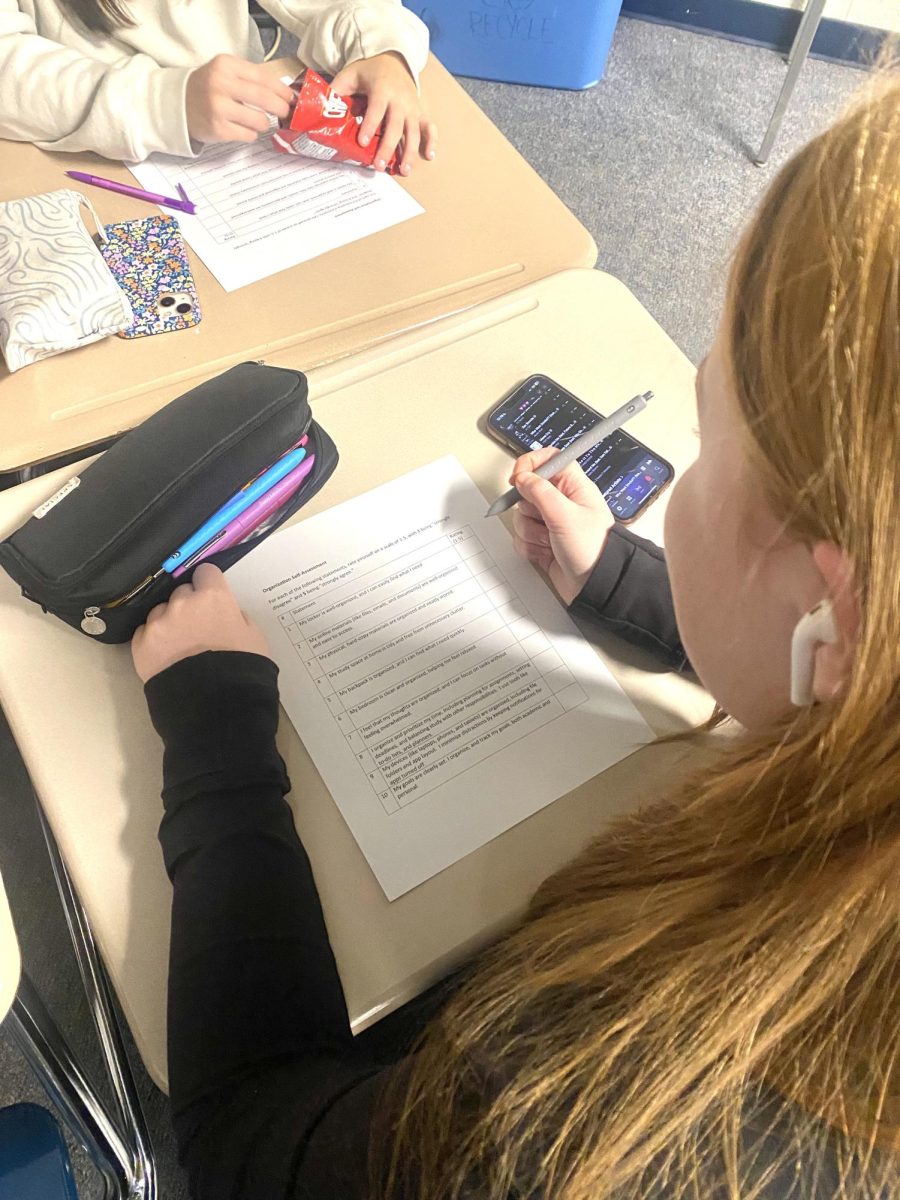Music is useful in a variety of ways, especially when it’s time to focus.
Headphones drive students into “the zone” when working on homework because music blocks out distractions in their surroundings.
There are many benefits of listening to some tunes when completing tasks. It improves students’ mental health and prevents them from becoming too overwhelmed with their education.
Music also improves mood and reduces stress. School is stressful, but turning on some popular hits lightens the mood. Studying is more enjoyable when the mind is quiet and allows students to work.
“Of course, music activates the auditory cortex in the temporal lobes close to your ears, but that’s just the beginning. The parts of the brain involved in emotion are not only activated during emotional music, they are also synchronized. Music also activates a variety of memory regions,” according to www.health.harvard.edu.
Listening to music activates the brain and improves comprehension. It keeps the mind awake and maximizes learning abilities. Without music, it is easier to wander off and forget material.
“Music has a profound effect on our mood, blood pressure, and heart rate,” according to www.nu.edu. “Music has the potential to take a person from the Beta brainwave state to deeper Alpha, and then Theta brainwave states, depending on the music.”
Students should be able to listen to music in class when they’re independently working. Airpods can be used during quiet times and teachers can play music on their speakers during group work.












